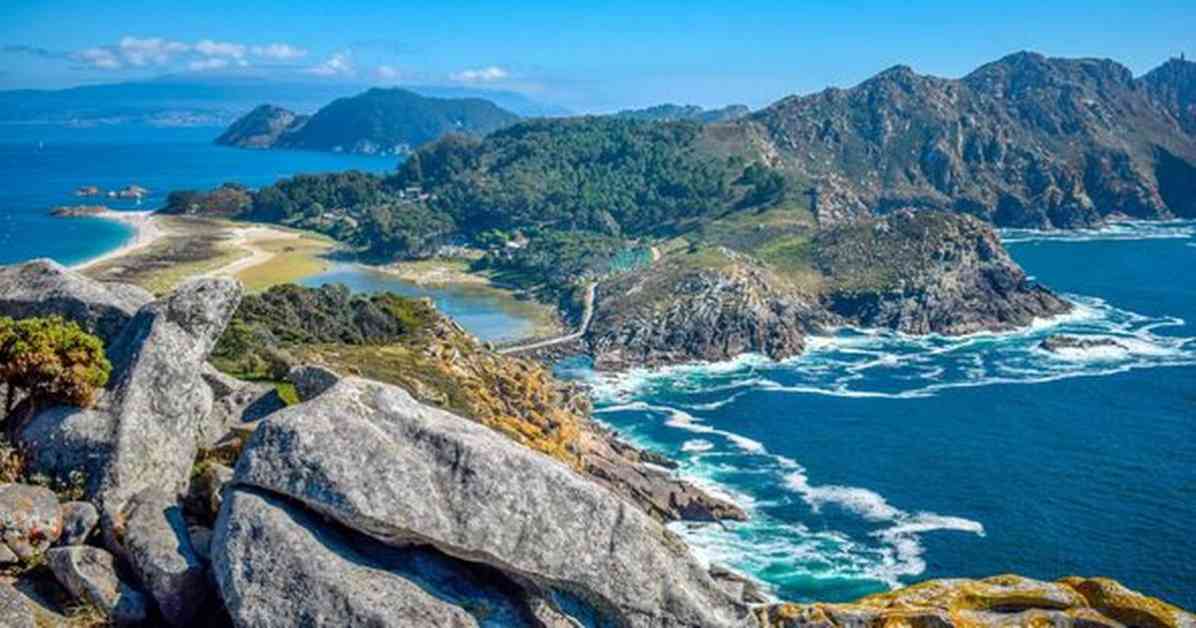Tourists heading to the beautiful Spanish hotspot of Galicia have found themselves the subject of a cheeky nickname given to them by the locals. Madrid residents fleeing the hustle and bustle of the city for a relaxing getaway to the towns and villages of Galicia are being humorously referred to as ‘fodechinchos’ by the residents of the region.
The term ‘fodechinchos’ translates to ‘fish thieves’, a playful jab at the behavior of the tourists from Spain’s capital. Miguel Vega, a local Galician, explained to the Guardian that a fodechinchos is essentially a visitor who is seen as a bit of an idiot, a cocky tourist from Madrid who may not necessarily respect local traditions.
The influx of visitors from Madrid and other parts of Spain to Galicia’s Atlantic coast has seen a significant surge recently. Many tourists are seeking respite from the scorching heat and overcrowded tourist spots elsewhere in the country. While the term fodechinchos is primarily aimed at tourists from Madrid, it is also said to apply to any outsider visiting the region.
The internal migration of Spaniards within their own country this summer comes at a time when Spain is grappling with extreme temperatures and the challenges of overtourism in certain areas. This has led to protests by locals, with thousands voicing their concerns over the impact of tourism on their communities.
One of the major concerns raised by locals is the economic impact of over-tourism. While tourism can boost an economy, it may also disadvantage local residents who often earn less than visitors. This economic imbalance has sparked unrest not only in Spain but also in other European regions, such as Croatia, where anti-tourism sentiment is growing.
TUI’s boss, Sebastian Ebel, has acknowledged the need to address these concerns seriously. Following a major protest in Palma, Majorca, where 20,000 people took to the streets, Ebel emphasized the importance of analyzing the motivations behind tourism and the impact it has on local communities.
Ebel highlighted the issue of foreign tourists buying up properties, driving up prices and making it difficult for locals to afford housing. He referenced the Danish model, where restrictions are in place to prevent foreigners from buying houses for private use, as a potential solution to the problem of over-tourism.
The sentiment against mass tourism is echoed by locals in Split, Croatia, where residents feel that the influx of tourists disrupts their daily lives. From noisy parties in residential buildings to the strain on resources and infrastructure, the negative impact of mass tourism is evident in many popular destinations.
As the debate over tourism’s impact on local communities continues, it is clear that a balance must be struck between the economic benefits of tourism and the well-being of residents. Finding sustainable solutions to manage tourism and ensure that local communities are not adversely affected is crucial for the long-term viability of popular tourist destinations.
Challenges of Overtourism
The rise in tourism in popular destinations like Galicia has led to a phenomenon known as overtourism. Overtourism occurs when the number of visitors exceeds the carrying capacity of a destination, resulting in negative impacts on the environment, infrastructure, and local communities.
In Galicia, the surge in visitors has put a strain on resources and infrastructure, leading to overcrowding in popular tourist spots. This has led to concerns among locals about the sustainability of tourism in the region and the impact it has on their quality of life.
Impact on Local Communities
The influx of tourists to Galicia has had a significant impact on local communities, particularly in terms of housing affordability. The demand for rental properties and vacation homes has driven up prices, making it difficult for locals to find affordable housing.
Additionally, the behavior of some tourists, such as loud parties and disrespectful behavior, has caused tensions between visitors and residents. The derogatory term ‘fodechinchos’ reflects the frustration of locals towards tourists who they feel do not respect their traditions and way of life.
Sustainable Tourism Solutions
Addressing the challenges of overtourism requires a multi-faceted approach that prioritizes the well-being of local communities while promoting sustainable tourism practices. This includes implementing regulations to control the number of visitors, investing in infrastructure to support tourism, and fostering a sense of respect and understanding between tourists and residents.
By finding a balance between the economic benefits of tourism and the preservation of local culture and heritage, destinations like Galicia can ensure that tourism remains a positive force for their communities. Collaborative efforts between stakeholders, including government agencies, tour operators, and local residents, are essential in creating a sustainable tourism model that benefits everyone involved.












